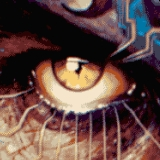You react to choices the specific way you do because of experiences you’ve had previously.
Reverse time without changing anything, you’ll always make the same choices because you’re having the same thoughts each time every time, because you’ve been conditioned the way you are.
The universe doesn’t “know” where it’s going, but the plan is already in action. You can choose whatever you want to do, but if you were the same person in the same circumstance, you would and will always make the same decision.
Hard determinist here. It doesn’t make the future predictable by me, but I don’t see how randomness could really occur. And then likewise there’s no such thing as free will.
My brother and I have been having an ongoing debate about this and Simulation Theory for a good few years.
In my mind, it’s a pointless question to try and answer. It makes for a nice thought experiment, but actually having a belief in it is useless.
I think it’s more complicated than free will existing or not.
If you knew every single possible value about the universe at its start and had a perfectly accurate model of physics, you could theoretically predict/simulate everything that would ever happen. For practical reasons, though, that’s impossible, even ignoring weird quantum effects, for the simple reason that that is a lot of data points, more than any of us could reasonably keep track of- it’s like how, in sufficiently controlled conditions, a fair dice can roll the exact same number 100% of the time, but there are enough variables that are hard enough to control for in a normal situation that it’s basically random.
Similarly, if you knew everything about every human on Earth, you could theoretically predict exactly what any of them would do at any given moment. Of course, that’s just not practical- the body and brain are a machine that is constantly taking in input and adapting to it, so in order to perfectly predict someone’s thoughts and actions, you’d need to know every single detail of every single thing that has ever happened to them, no matter how small. Then, you’d need to account for the fact that they’re interacting with hundreds of other people, who are also constantly changing and adapting. It’s just not possible to predict or control a person for any reasonable length of time like that, because one tiny interaction could throw off the entire model.
Just look at current work with AI- our modern machine learning algorithms are much more well-understood and are trained in much more contained environments than any human mind, and yet we still need to manually reign them in and sift through the data to prevent them from going off the rails.
So, technically, I suppose free will doesn’t exist. For practical purposes, though, what we have is indistinguishable from free will, so there’s not much point getting riled up about it.
Indeterministic + free-will doesn’t exist and can’t exist. You literally end in impossible contradictions if you entail its existence in a consistent universe (as in, one where everything that exists is subjected to the same natural laws).
As a side note for OP, Hisenberg has proven there’s no such thing as “knowing the initial condition”.
The concept of belief is rooted in free will, is it not?
Not necessarily, no. You may believe something and yet not be free to believe otherwise.
You forget, the underpinnings of physics involve a heavy dose of randomness. Contrary to the opinion of a certain famous scientist, God does, in fact, play dice. Lots and lots of dice.
So no, the universe is not deterministic.
Note that this doesn’t mean free will exists. Your decisions may not be entirely predetermined, but them being determined by random chance doesn’t fit the definition of free will, either.
deleted by creator
The question is underspecified. Why do you want to know if free will exists? What will you do differently if it does exist vs if it does not exist?
This is similar to questions like, “is water wet?” You can generate endless debate on the topic, but it’s all intellectual masturbation until you are genuinely looking for the answer to a specific question.
No.
Deterministic with no actual free will, but complex enough that we’ll never be able to tell the difference. Essentially, our choices may technically be predetermined but for all intents and purposes, they are indistinguishable from free will and can’t be predicted.
Exactly how I feel about it. Whether or not free will exists has functionally no effect on my life. In order to survive and succeed in the world, I am forced to live as if I had free will. The universe isn’t going to do my laundry or clear out my work queue if I don’t make decisions and take actions. While those decisions and actions may be “forced” by the broader universal framework, from the local perspective, I still have to make them.
Therefore, the question itself is meaningless. If I don’t live my life acting like I have free will, whether or not I am engaged in a pre-determined path, shit will get really bad for me really quickly.
I have the feeling most people cling to free will as a concept because not having free will raises questions if a “self” truly exists. However the existence of free will can be as scary if not more, since how could we define a “self” if it could freely do something not based on what defines it.
Now see, if you’re looking at things from a biological point of view, it’s important to recognize the forest from the trees. A few trees are, well, just a few trees. But a great many trees together constitutes a forest, and becomes more than the sum of its parts. I feel the same way about the human brain. Yes, it’s a series of electrical and chemical impulses, but there are so many of these working in tandem that it becomes exponentially more complex, akin to ever-advancing computer technology. It’s complex enough that we think, we talk, we make decisions. And those decisions aren’t based solely on instinctional drive, and can even be made in opposition to them.
It’s true that human behavior can be accurately predicted based on an individual’s natural tendencies, but there are never any guarantees. There’s always a choice, a chance to veer off course. Decisions can be prudently made after careful research, or made on a frivolous impulse. Maybe you even realize that you would ordinarily take one action in a given situation, but do the exact opposite. You consciously chose to ignore your first impulse. If free will is an illusion, it’s a damned convincing one.
Free will doesn’t exist, but we can’t perceive ourselves as anything but free creatures.
The way I like to see life is like a striped funnel: you’re going in that direction and will ultimately die, and there are a series of things you will encounter (the various colored stripes) and others you can and can’t encounter.
I can only perceive me as endowed with free will, but I can think of a synthesis between free will and determinism. So if my father and grandfather had some kind of illness, I know I will probably have it too, if I’m born in Germany I know I’ll never be U.S. President, if I was born poor I know that I probably won’t be able to do some things.
But if we’re talking about “how reality works”, we aren’t really free.
This makes me think of MGS2’s ending
Quantum mechanics are probabilistic, which serves as a good argument for the universe as a whole being probabilistic. The position of a single particle could change a great many things!
Which leaves the question: Has our mind the ability to use this randomness and shape it by our will? Because if not the universe might be probabilistic and still we’d probably not have any free will of our own; being determined to act according to the setup of our nerves and synapses and their activation status at any given moment, plus a bit of incalculable randomness.
The licanius trilogy explores this really nicely. If you’re a sci-fi or fantasy fan I really do highly recommend them.
Hopefully without spoiling too much, the future being predetermined doesn’t necessarily prohibit free will. In the same way we can’t travel backwards in time we can’t travel forwards faster. Everything has happened, both in the past present and future, but it’s still the decisions of the people that led to and lead to the outcomes that exist. The past is just as postdetermined as the future is predetermined, if that makes any sense.
It’s weird but I liked it.
Here is a good lecture from Robert Sapolsky on Human behavioral biology that will replace your question with more questions:
https://www.youtube.com/watch?v=NNnIGh9g6fA







